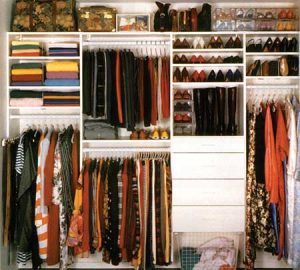 Ever since we were little children, our mothers have been nagging us to clean our room. But as we’ve grown up, the seemingly small task of de-cluttering has become more and more overwhelming as we accumulate more possessions. If de-cluttering is hard for you, here are a few tips that may help you get started without getting overwhelmed or overly burdened.
Ever since we were little children, our mothers have been nagging us to clean our room. But as we’ve grown up, the seemingly small task of de-cluttering has become more and more overwhelming as we accumulate more possessions. If de-cluttering is hard for you, here are a few tips that may help you get started without getting overwhelmed or overly burdened.
Be disciplined
Start and keep up a schedule to de-clutter your home every week. Set aside a designated time one hour every week to do some de-cluttering work. Use a timer for whenever you want to complete this task. After your allotted time has completed, and your time has rung, finish up and wind down your cleaning. You don’t want to go over the time in case you get burned out.
Concentrate on one small task at a time
One way to do this is to focus on one room at a time. Only work on de-cluttering that one room until it is picture perfect. Avoid jumping around from room to room and cleaning a little here and there. Make sure one room is totally free of clutter before moving on. You can also divide up your de-cluttering into one-hour mini-tasks.
For some items, there’s no debate as to whether you should keep something or throw it away. Start by chucking these items: old paint, old power cords, old plastic containers, old batteries, expired drugs, newspaper, and everything in your junk drawers.
Don’t get too sentimental over some of your things
Yes, the skirt you wore on a memorable date six years ago is a friendly reminder of your younger years, but if you haven’t worn the piece of clothing for longer than 18 months, it’s time to toss it. If you find yourself feeling attached to some of your clutter, take the first step and throw out all of the non-sentimental junk first. This includes old books, junk mail, broken electronics, damaged jewelry, and old magazines. Starting with these items will get the ball rolling and could trigger you to be more willing to throw out the things you want to get rid of but have an emotional attachment to.
Sort your items into groups
You’ll want at least two major piles: trash and “for sale”. Sell your items in the “for sale” pile on Craigslist or eBay or at garage sales and consignment shops. Having a “for sale” pile gets rid of some of the sting of giving away some of your clutter.
Get waste dumpsters
If you have an overabundance of things you need to throw away, you want to make sure that you can get rid of them properly. Sure, you may not fill up the entire dumpster, but you want it on hand just in case. Having waste dumpsters will encourage you to be liberal in your clutter disposal. If you don’t rent a waste dumpster, you risk a point in your de-cluttering when you think to yourself that you might as well keep your clutter because you have no way of disposing of it.
Don’t re-clutter your home
Lay off of buying any new electronics, toys, furniture, books, or other objects that could derail your de-cluttering effort. By not bringing any new items into your home, you retain the commitment to de-cluttering. It’s much harder to remove possessions that you own than it is to keep them from your home in the first place.
Jill Burbank is a part of an elite team of writers who have contributed to hundreds of blogs and news sites. Follow her @JillBurbank2.
Latest posts by Canadian Home Trends (see all)
- Understanding The Importance of Great Design - February 21, 2026
- The Green Effect: To Clean or Not to Clean - February 21, 2026
- Functional Warm Addition - February 21, 2026






